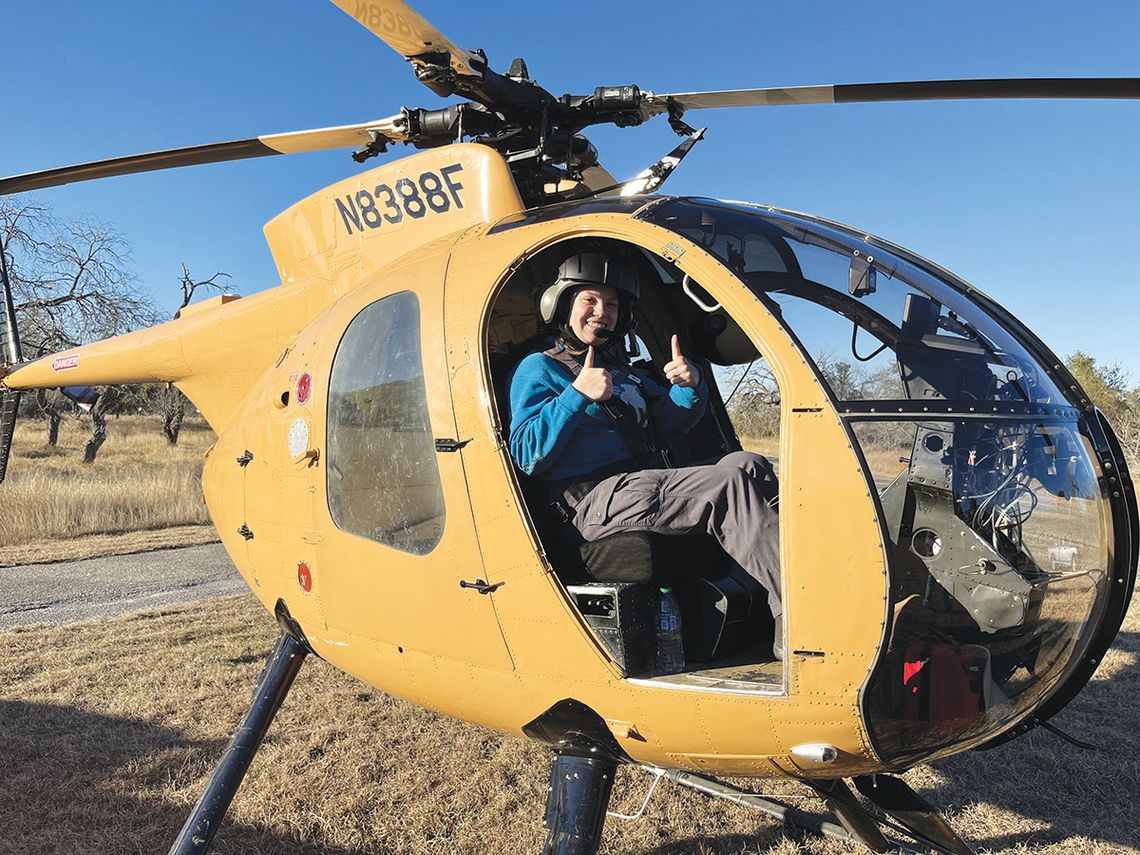As a young girl growing up in Collinsville, Lydia Cates enjoyed watching documentaries with her dad.
“You know how every dad has that one thing they really love?” Cates said. “For some dads it’s history, or sports. For my dad, it was documentaries. We especially loved animal documentaries. Shark Week was a fan favorite at our house.”
Over the years, as Cates grew more fascinated with these shows, she told her parents in passing that she really wanted to do that – work with animals, especially marine life.
“You can totally do that!” they told her. It was through their encouragement that Cates decided to pursue a life as a marine biologist.
At the time Cates was attending Collinsville High School, there hadn’t really been a student interested in seeking a biology-heavy degree.
“They didn’t quite know how to prepare me for a career in marine biology,” Cates said.
There had also been a lot of turn-over in the high school science department, so it was difficult to find a solid foundation there. However, in 2018, she graduated and moved south to attend Texas A&M University – Corpus Christi. Not knowing what to expect, Cates had a great support system that helped propel her through college.
During her last semester, Cates landed an internship with Texas Parks and Wildlife. There, she (along with two other contributors) began writing an article regarding Gafftopsail Catfish. The paper, titled “Gafftopsail Catfish in Texas Estuaries: population trends and ecosystem implications,” began as a preliminary analysis. However, it was ultimately published in the North American Journal of Fisheries Management, a journal owned by the American Fisheries Society.
Cates’ work was the first time the population trends of Gafftopsail Catfish had been looked at and published in the state of Texas.
“Anyone that’s gone fishing along the Texas coast has probably encountered these guys,” Cates said. “They’re notorious bait-stealers and nuisances for anglers. But they’re an important midlevel predator that contributes to the health of the entire bay ecosystem.”
In three short years Cates earned her bachelor’s degree in marine biology and found herself a “hopeless graduate looking for a job.”
“The market was abysmal,” Cates said. “I was trying to find a job in marine biology, but you really need a Master’s degree. So I just needed something to pay the bills in the meantime.”
In January of 2022, Cates took a job with Texas A&M Wildlife Services (part of the United States Department of Agriculture [USDA] Wildlife Services). She was hired to start a project to study the destructive effects of feral hogs in Texas and the eradication of them.
The 2018 Farm Bill enabled Wildlife Services to not only provide aerial services and traps to landowners to protect their land from the damage and destruction of these hogs, but also enabled Cates and her coworkers to teach landowners how to use these tools.
Cates’ job included taking blood samples, organ samples, tracking migration habits and delivering helicopter fuel for aerial services that helped to eliminate 200-300 hogs a day.
In the summer of 2023, Cates was compelled to go back to school to get her Master’s degree. She loved her job, but really wanted to get back to her dream of working with marine life. Not wanting to lose her, Texas A&M Wildlife Services came up with a creative solution.
They created an elaborate project that would study whether feral hogs are contributing bacteria and pathogens into Texas rivers and streams that flow down to the Gulf of Mexico, contaminating the oyster beds along the coast -- a major concern for the USDA and the restaurant community. A professor at Texas A&M-Corpus Christi was excited about the idea of the project and agreed to take Cates on as a graduate student.
Funded through a grant provided by the National Feral Swine Damage Management Program (largely run by USDA-APHIS with contribution from other federal, state and local agencies), Cates’ project will take place on the Aransas River and in Copano Bay near Rockport, Texas. Sampling will occur from September 2024 through September 2025.
“This kind of research has never been done before. I’m looking forward to seeing the results, which can hopefully be used to create further research opportunities to aid in feral swine removal and protecting our Texas oysters,” Cates said.
Cates’ project has caught the eye of another professor at Texas A&M in College Station, who has created a sub-project that weighs in on the aspects of feral swine.
“This project has become a lot larger than expected,” Cates said.
While this isn’t the career path Cates had expected, she has no regrets. At some point, she’d like to obtain her PhD, but for now her focus is completing her Master’s program and seeing where it takes her.
“I’m extremely grateful for everyone who has supported me in my efforts to pursue my passion over the years,” Cates said. “Without their support, I surely would not be where I am today.”
Of all of Cates’ supporters, her dad is especially thrilled. Now, when the pair watches Shark Week, they see people Cates works with featured on the show. In a very round-about way, the story has come full-circle.
“I’d like to encourage anyone who is considering a passion in Marine Biology to follow that passion,” Cates said. “The path may be difficult, but the destination is worth it.”
To ask Cates questions about her career, email [email protected]

